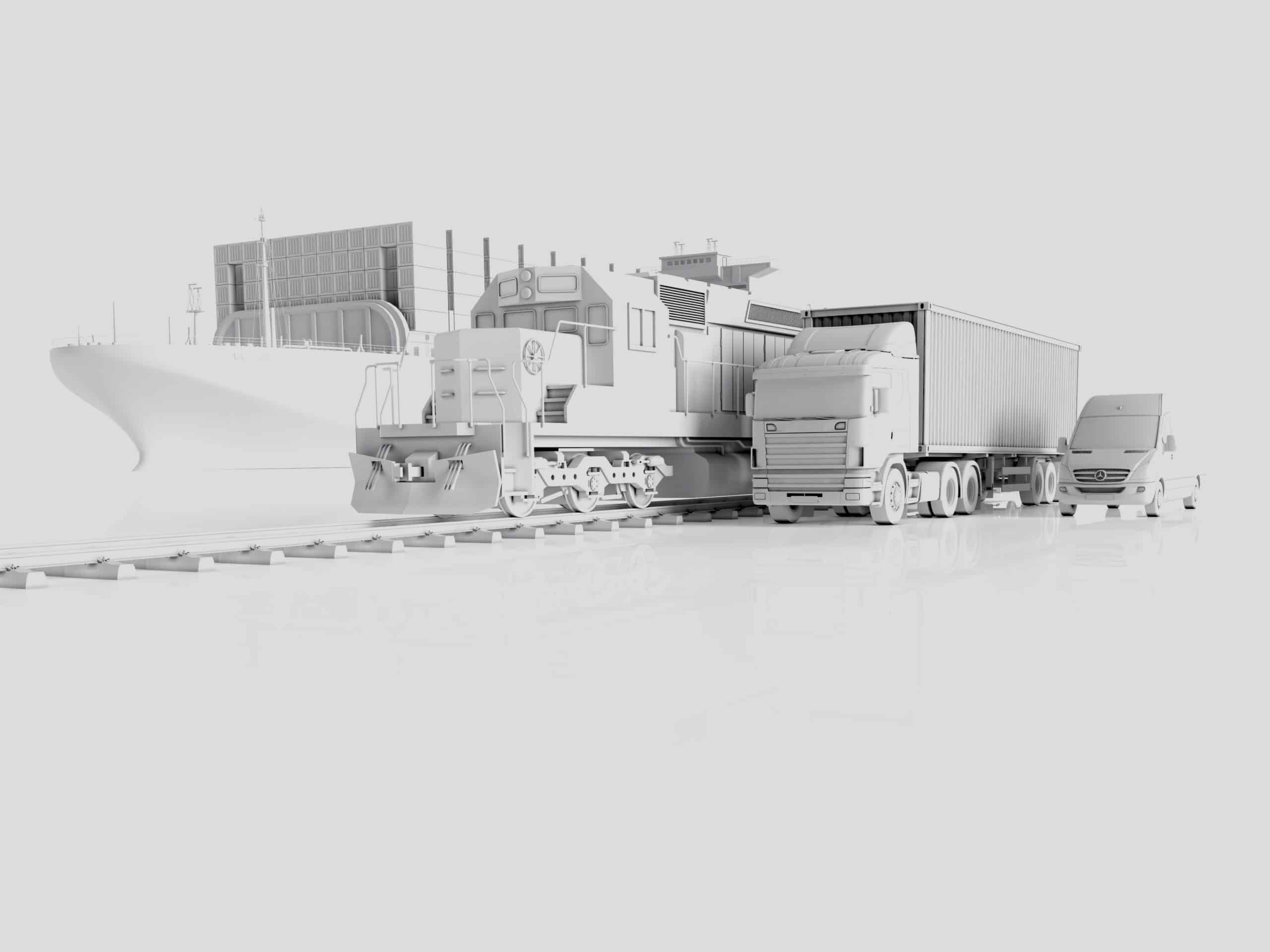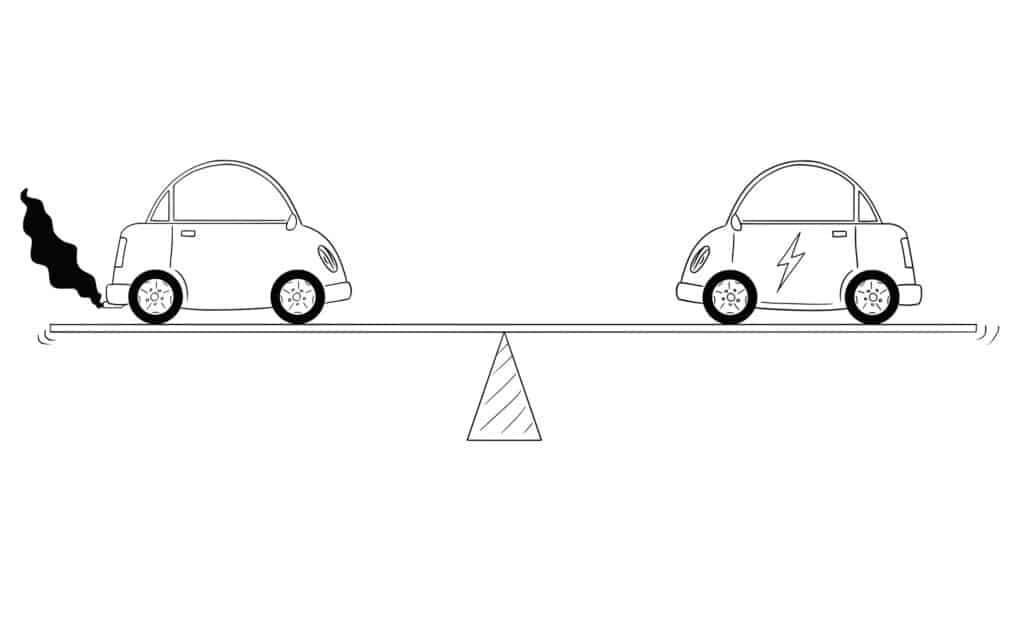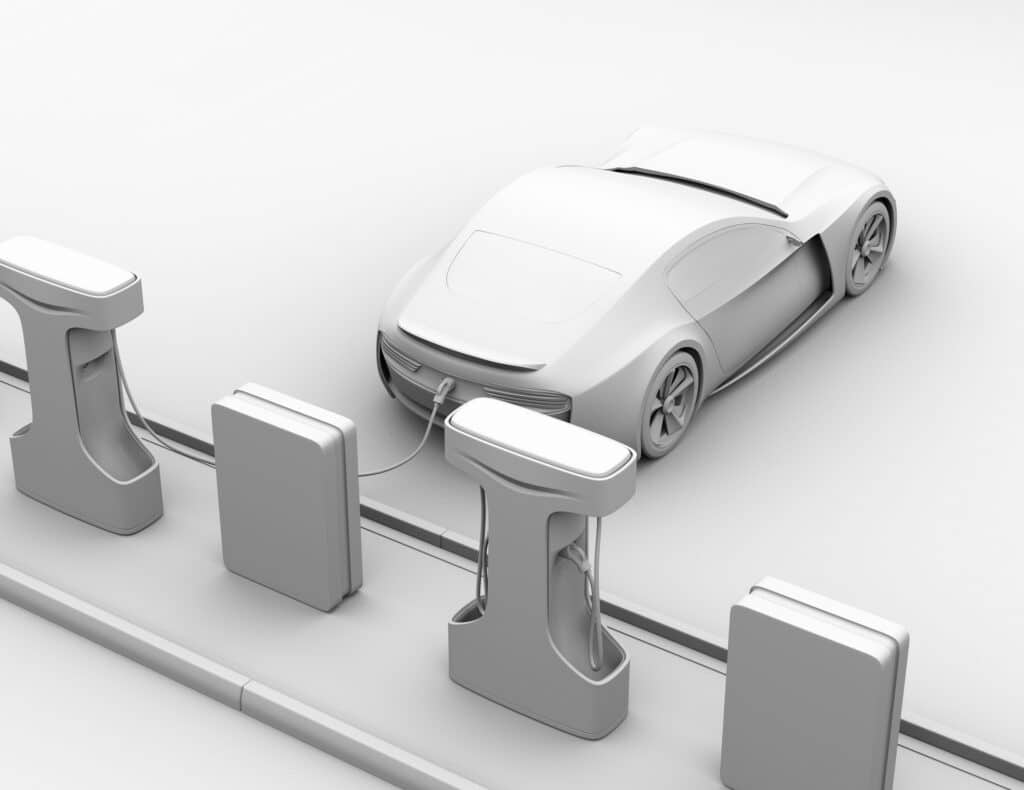POSTED
September 28, 2022
HOW MUCH Climate Change Will Hurt Your Finances – Part 3: Transportation
Transportation is the economy’s lifeblood. All things human, animal, and inanimate travel from place to place, usually repeatedly throughout their lives. Workers travel daily to their offices, and tourists travel around the world. Vehicle parts cross international borders back and forth, and raw materials are trucked down the street or shipped across the globe. Every […]

Transportation is the economy’s lifeblood.
All things human, animal, and inanimate travel from place to place, usually repeatedly throughout their lives.
Workers travel daily to their offices, and tourists travel around the world. Vehicle parts cross international borders back and forth, and raw materials are trucked down the street or shipped across the globe. Every click on Amazon initiates an ecosystem of transportation to make next-day deliveries possible.
And the lifeblood of that lifeblood is hydrocarbons. 90% from petroleum (gasoline, diesel, jet fuel), 5% from bio-fuels, and 4% from natural gas.
The idea of getting rid of petroleum in our transportation hits home for me, as it does for many people.
My family raced cars and designed components for GM vehicles. We tell car stories at all family gatherings. Through that car culture, I have always loved the thumping of pistons and the deafening roar of an ICE (Internal Combustion Engine).
Yet, my first electric plug-in hybrid vehicle (Ford Fusion Energi) was an excellent addition to the mix in our family. Our next new vehicle will be a fully electric pickup truck that perfectly serves our rural lifestyle.

Personal transportation is only one of the many areas of climate change that will impact the movement of goods, services, and people.
Part 3: Transportation – The Problem
Transportation hits every sector. As gas prices rise and fall, so do the prices of most products and everyone’s commute or family vacation. Moving people, goods, and services accounts for a whopping 27% of all U.S. emissions, the most significant contributor.

I have written more thoroughly about why we need to transition away from oil and gas for many reasons. On War In Ukraine & U.S. Energy Independence.
Most of us don’t usually think about the cost of transportation for many of the products we buy, but it’s a large part of the price.
When we buy a widget, it’s easy to think of the materials used to make it or the profits sellers are taking. Yet, most of us pay little attention to the container ship it traveled on and the truck rolling down the highway.

Many of these widgets cross borders several times before they make it onto the shelf and again once we drive there to buy them or order them online.
These costs multiply with every trip, and as gas and oil prices rise as we transition to a new energy economy, the cost to consumers goes up in lockstep.
And that’s just shipping. We also travel individually for work or leisure. Those costs will keep rising as climate change impacts how we move people and things around the globe.
One international plane flight from LAX to London generates about 2000 lbs of carbon. That’s almost a quarter of the average emissions from one passenger car for a whole year.
The cost in dollars is clear and rising, and the carbon cost is gargantuan, contributing to the rise in prices. Transportation exists in an accelerating feedback state, where the carbon added to the atmosphere is the very thing driving up prices for transportation. It’s an ironic and scary resonance.
Transportation – The Personal Cost
$100-$200 more per month per household by 2040 if climate change is left unmitigated.

According to Motley Fool, the average US household spends $819 on Transportation. For most families using ICE (Internal Combustion Engines), those costs are susceptible to dramatic shifts. The price fluctuates as supplies and geopolitics play out, and climate change amplifies these issues. If these dynamics are left unchecked, surging gas prices will hurt your finances. A 10% increase in transportation is $80, and it is easy to imagine climate change costing that much.
According to American Shipper, climate change could cost the US shipping industry $25B annually by 2100. Assuming a linear increase starting today, that’s an increase of $320M annually for the next 78 years. That number compounds $1 this year, $2 next, $3 the following, and so on.
Delta Airlines CEO says airfare will increase 10-20% as they implement new carbon offsetting policies, according to reporting by the BBC. Delta has pledged $1B to use 10% sustainable aviation fuel by the end of 2030. The cost of doing nothing would be much higher for travelers, albeit a complex number to calculate.
Transportation – The Solution
Up to 52% of global drivers say their next new vehicle will be electric; that number is only 25% for Americans. And while research shows that many people idealize themselves in these types of surveys, it’s still an impressive shift.

The climate benefits of switching from fossil fuels to electricity are monumental and will save you lots of money.
The cost per mile of electric vehicles can be as little as $0.03, which is $0.04 cheaper than a gas equivalent. During 15-year ownership, the switch to an electric car could save you as much as $14,480 in fuel alone.
The maintenance costs of electric cars are famously low: no oil changes, no engine filters, and electric motors are vastly simpler than internal combustion engines (fewer moving parts).
These exact electric vehicle solutions are beginning to penetrate global shipping and road transportation. Electric cargo ships are gaining momentum as battery technology improves to meet the challenge. And electric Semi trucks and last-mile delivery trucks are shifting to electric too.
Moreover, cleaning the grid with solar energy will help clean up the entirety of the transportation sector.
Using renewable energy sources to generate hydrogen through electrolysis is an excellent solution for high-demand transportation such as international flights or longer shipping routes. There are companies focused on this technology, such as Energy Observer’s LH2, a hydrogen power cargo ship. And how Delta and Airbus are investing in hydrogen-powered planes to meet consumer demand for a lower-carbon travel option.
Transportation is a climate challenge for all of us.
I have come to understand the transportation problem as one of shifting personal expectations, gradual change, and flexibility in envisioning solutions.
No one technology solves this problem.
We can transition transportation away from fossil fuels, but we must be open to personal changes and embrace a world with diverse energy technologies across the sector.
If you want to read more about how climate change will impact your finances, This article is Part 3 of a 6 Part series;
HOW MUCH Climate Change Will Hurt Your Finances – Part 1: Housing
HOW MUCH Climate Change Will Hurt Your Finances – Part 2: Food
HOW MUCH Climate Change Will Hurt Your Finances – Part 3: Transportation
HOW MUCH Climate Change Will Hurt Your Finances – Part 4: Insurance






Pingback: HOW MUCH Climate Change Will Hurt Your Finances - Part 2: Food - Shasta Power
Pingback: HOW MUCH Climate Change will hurt your finances - Part 1: Housing - Shasta Power